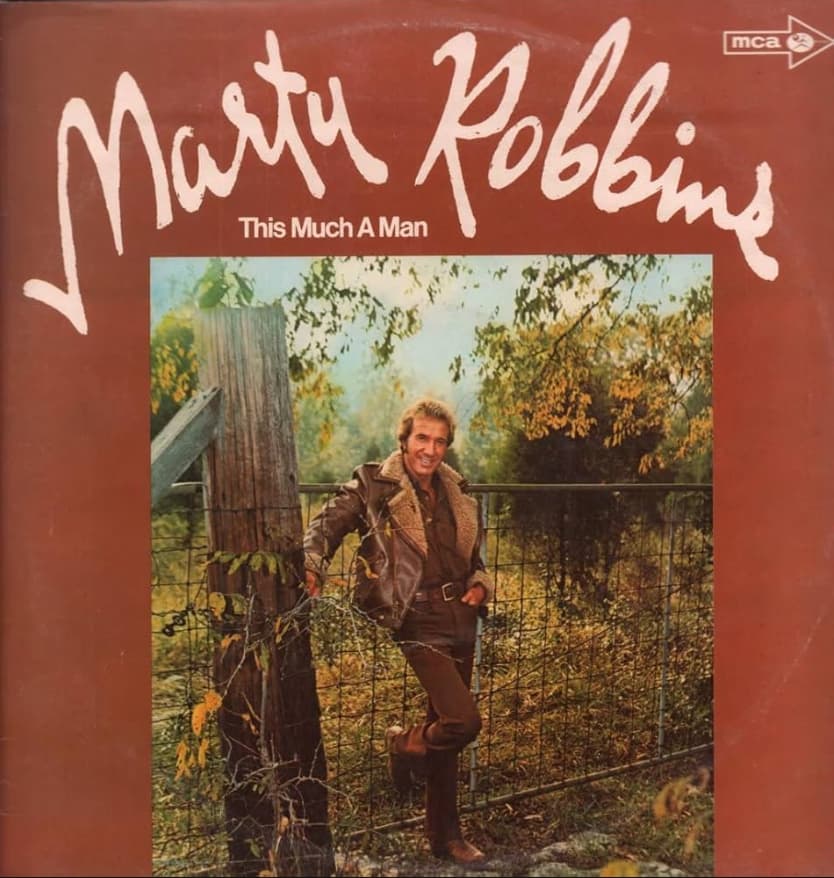
“This Much a Man” is a song of unconditional love and enduring strength.
The Lasting Echo of a Cowboy’s Love
In the vast and ever-shifting landscape of country music, some songs are more than just melodies; they are timeless reflections of the human heart, capturing emotions with a sincerity that resonates across generations. Such a song is “This Much a Man”, a profound and touching ballad penned by the legendary Marty Robbins. Released in 1972 on the Decca Records label, this track found a special place in the hearts of fans, though its commercial performance might not have mirrored its immense emotional weight. While it didn’t top the charts in the same way as his other iconic hits, “This Much a Man” still made its mark, reaching a respectable No. 16 on the Billboard Hot Country Singles chart. For those who grew up with Robbins’s music, this was a gentle, heartfelt whisper in a world of boisterous tunes, a song that you didn’t just listen to—you felt it.
The story behind the song is as intimate and genuine as the lyrics themselves. Marty Robbins was a true romantic, and his music often reflected his deep affection for his wife, Marizona. While many of his songs were tales of cowboys and gunfights, others, like “This Much a Man”, were simple, powerful tributes to love and commitment. It’s said that Robbins wrote this song as a personal declaration, a promise to his wife that transcended the simple words “I love you.” He wasn’t just a singer; he was a storyteller, and this song is perhaps one of his most personal stories. It’s a testament to the quiet strength and unwavering loyalty that defines a man in love, not through grand gestures but through steadfast devotion.
The meaning of “This Much a Man” is found in its profound simplicity. The song eschews flowery language and instead uses a plainspoken, direct approach to convey a powerful message. It is a promise, a vow to his beloved that his love is as certain as the sunrise. Robbins promises not the world, not riches, but something far more valuable: unwavering support, a listening ear, and a love that will endure through all of life’s trials and tribulations. The lyrics speak of a love that is unconditional, one that doesn’t need to be earned or proven, but simply is. It’s a love that acknowledges imperfections and hardships yet remains unshakeable. For listeners, especially those who have experienced the long and winding road of a lasting relationship, the song is a nostalgic mirror, reflecting the quiet sacrifices and profound bonds that hold a marriage together. It evokes memories of shared moments, unspoken understandings, and the deep comfort of knowing you have someone who will stand by you, no matter what.
Musically, the song is a masterclass in understated elegance. Robbins’s smooth, effortless vocals glide over a gentle, countrypolitan arrangement, featuring a warm, melodic guitar and a subtle string section that adds a layer of depth without ever becoming saccharine. The production, a hallmark of the early 1970s Nashville sound, is pristine and polished, allowing the sincerity of the lyrics to shine through. The song’s placement on his album “Marty Robbins’s”, released in 1972, further cemented its place in his discography. While albums from this era often had a mix of upbeat and melancholic tracks, “This Much a Man” stands out as a genuine, heartfelt moment, a brief pause for reflection amid the more traditional country fare. It remains a poignant reminder that the truest love stories are often the most simple ones, and that a man’s worth is measured not by his accolades, but by the size of his heart.